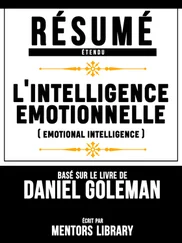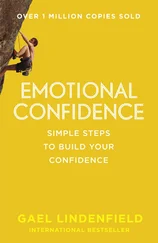While we each have a unique constellation of circumstances and contexts in which we find ourselves, we must each ultimately make our way in this world. Our visible habits are born from the sum total of our life circumstances and experiences. But it is from our invisible habits of mind, our perceptions and how we make sense of them, that we set everything into motion.Though our brain mostly curates our experiences for us, it's up to each of us to figure out what we have at our own disposal to intervene. Not unlike attempting to juggle a set of Cutco knives, we often find ourselves facing a juxtaposition of unexpected and ever-evolving circumstances as we grapple with the intricacies of our own lives and those of the people around us. Yet we don't receive any formal training to navigate life's mysterious bits, which nonetheless represent the vast majority of what we wake up to and have to face each day. Instead, we don habits like armor as we go through life, making the best of it, crossing our fingers, hoping today isn't the day we'll come apart at the seams. Each habit we have serves one if not many purposes, one of which is as a coping mechanism we unconsciously craft and come to rely upon, often well past its expiration date. We continue to pull from the bank of experiences we've had up to this point as we attempt to make sense of and adapt to our surroundings. We are each the beneficiaries of the belief structures, the artifacts of meaning, passed down to us through the respective contexts influencing us since birth—our shared and unique lineages of sense-making.
As is the case with most of us at various points in our lives, Harriett's life circumstances exceeded her ability to cope with life's devastatingly precise blows. Harriett wound up getting married right out of high school and was immediately catapulted into a life of abject poverty, hard work, and the stress of dealing with situations she'd not encountered up to that point. As the story goes, she and her twin had supposedly been coddled as they were growing up, no doubt in response to the thread upon which they precariously glided into this life and upon which they remained delicately balanced thereafter. Harriett had many children in close succession following her husband's—my grandfather's—return from World War II during a time he was meant to have attended Dartmouth College, just as his own father had. Instead, he found himself responsible for the care of a growing family and a wife struggling to keep all of the remnants of their lives stitched together. Directly upon his return from the war, he was put in charge of the daily operations of the family farm. It was a situation in which no one was set up for success, yet everyone had to carry on the best they could anyway—no doubt a familiar refrain that plays at times softly and at other times more loudly against the backdrop of everyone's lives. Each suffers the collateral damage life doles out. Like spoonsful of ipecac, we swallow what is placed at our lips with the faith that it will help more than it harms, knowing full well that there will be consequences.
For Harriett, these life challenges yielded erratic and unstable states of mind, not to mention an array of notably unconventional habits. While surely not an intentional strategy, her unusual habits served the function of getting her through life's extraordinary circumstances. They also happen to be what we fondly remember her by now. If her novel and unexpected combination of words didn't have the effect of keeping you teetering on the edge of your seat, then her quirky collection of habits certainly would. Upon entering her house, guests might be greeted by a rotting chicken carcass sitting atop the washing machine in the mudroom, where the anticipation of what lay in store would dissuade them from taking off their shoes. Harriett would stow away freshly baked chocolate cake in the filing cabinet, possibly with the logic no one would find it in there, although everyone eventually did. She cultivated a spectacular garden of colorful molds and crystals she kept inside the refrigerator—juxtaposed with the food that would be served each day. Growing up, my mom had to fish her clothes out of the deep freezer where Harriet conveniently placed any freshly washed laundry in twisted heaps parked next to packages of frozen meat wrapped in butcher paper. Each morning my mom would have to excavate, thaw, dry, and iron the frozen clothing if there were to be any hope of reanimating and donning pieces of her wardrobe again. Imagine what those kinds of experiences prepares a human for.
Harriett also had a number of pithy sayings we now lovingly refer to as Harriettisms . After the untimely death of my cousin, my grandma Harriett offered up the following words of wisdom when the discussion among family turned to the topic of the upcoming birth of my daughter Sonya: “You only have so much potential, and that's it.” She then made a clicking noise with her tongue against the roof of her palette as if she were suddenly atop a horse signaling it to giddy up and move on out before throwing her head back in unbridled laughter. While everyone else exchanged nervous and furtive glances around the table, someone thankfully broke the uneasy silence with a suggestion that we have the choice combination of words embroidered on a baby blanket. It was a toss-up between that and another of Harriett's favorite sayings, “You don't have the sense God gave a soda cracker!”—a phrase, if you were the recipient of, you could be sure wasn't a compliment.
As is the case with many people we interact with in our lives, dialogue with Harriett was more like a one-way conversation, from her to you, interspersed with rhetorical questions she mostly didn't want you to answer, although nodding was tolerated. She would often go on and on telling stories about the Emblem Bench. As a child I thought she was referring to some kind of home base, a place where people go to rest and take refuge from being chased as they do in the game of tag, which in this case ironically it kind of was. The Emblem Bench was how she referred to the small farming community in the middle of nowhere, Wyoming—population 23—where she and her family lived on the Edwards family ranch. Other times, she would become engrossed in telling stories about Werbelows , a reference many mistook for mythical creatures or a species of marmots when, in fact, she was referring to the neighbors whose surname was Werbelow . Yet despite all Harriett came up against over the course of her life, she managed to keep emerging and prevailing. She outlived my grandfather by a decade and passed away at the age of 88 on Thanksgiving Day.
Like Harriett, we are all dealt a seemingly random and at times brutal hand from a deck that seems hopelessly stacked against us. While we do our best to keep everything straight, we often find ourselves dropping what we can no longer hold or adding to an ever-evolving inventory of mismatched sets and runs as we attempt to discern which cards to retain, discard, or simply play. Similarly, it's up to each of us to figure out which aspects of ourselves and our largely unexplored habits of mind will go unchecked as they predispose and set into motion our actions that define our outcomes—stark reminders of the choices we've made in an ongoing tally of our wins and losses.
We each have habits; although yours are likely different than Harriett's, they also serve some purpose in your life. Whether they bear the mark of tediousness and routine or take the form of stories and beliefs intended to help us cope, we each have them in spades. We come to rely upon a repertoire of habits—an entourage at the beck and call of our mind. Yet among the variety of purposes our habits serve, the one our brain and body is by design the most preoccupied with is the conservation and efficient use of our body's resources. As our brain perpetually predicts and anticipates what's coming next, it adjusts the balance in our allostatic reserve. Anything it perceives will require a greater metabolic lift, such as applying conscious thought or attention, carries a heftier price tag. Habits partially solve for that by bypassing the need or permission for our conscious involvement.
Читать дальше












